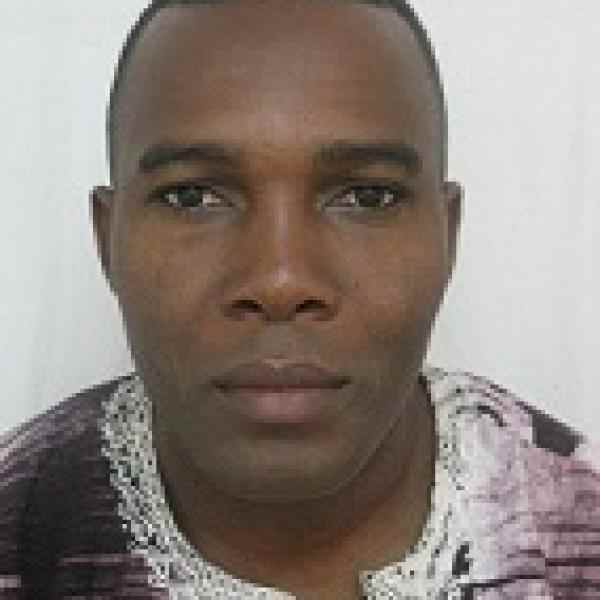Introduction
Sena is building an African environmental movement of young entrepreneurs aware of their responsibilities, capable of supporting themselves, providing solutions to improve the living conditions of populations, and engaging as citizens to ensure large-scale actors take responsibility and action. He uses youth volunteering and their spirit of commitment to promote the environment and create new job opportunities..
The New Idea
In order to ensure better living conditions for future generations, Sena transforms young people into environmental champions and supports the creation of the green economy in the Sahel region.
At the primary school level, Sena has launched an environmental education program that has thus far been lacking in the educational system. He is building environmental education and green entrepreneurship into a curriculum that currently sits alongside traditional primary education but which he hopes will become incorporated into the formal system. Once the youth are educated on key environmental topics, they are put in direct contact with communities where they experience them firsthand and gain practical experience in creating and spreading solutions. Sena is so convinced that the future of Africa’s youth employment lies in the green economy that he has implemented poverty-control projects that combine environmental and business education for middle-school students. Through such activities, students discover new employment opportunities, and quickly develop entrepreneurial skills. In recognition of high youth unemployment amongst university graduates, Sena created a program in which graduates are also trained on environmental education and work with communities for a year to create or support Village development Communities that tackle local challenges. Thus, youngsters become advocates and promoters of the environment, develop new economic opportunities on the basis of environmental awareness, and stand as a robust movement to drive organizations and governments to include communities and their interests in environmental policies.
Sena’s organization (Young Volunteers for Environment, “JVE”) is Africa’s largest youth organization working for the protection of environment. Togo is the laboratory where all new initiatives are tested before they bring these ideas to other countries. So far, people from 25 other countries approached Sena to assist with the launch of this work in their home countries. Sena is well aware of the burden and importance of the work of other youth organizations. Therefore, he has developed a platform that brings together all youth organization networks in Africa in order to build synergies for more relevant results and that simultaneously allow for the promotion of green jobs.
The Problem
Togo is no exception to the environmental degradation and the loss of biodiversity that we see as a result of mankind’s actions across the world. Despite its size, the country has had one of the most assaulted ecosystems in Africa over the last fifty years. The country has lost 5.75 percent of its forests between 2005 and 2010 as over 80 percent of the population uses wood to meet home energy needs. Some major infrastructure projects, such as dam construction, have also damaged the environment, with adverse effects on natural hydraulic river systems water quality and the functioning of aquatic ecosystems.
While there are some reforestation, recycling and ecotourism campaigns in Togo, these are largely initiated by international organizations and agencies. There efforts have been small, hampered by resource constraints and little accountability of those tasked with the country’s environmental management. Most of all, people remain indifferent to and ignorant about threats to their natural environment and do not understand its potential negative impact on their livelihoods and quality of life. Without an understanding of the scope of the problem, their contributions to it and how to take action to curtail environmental damage, the population cannot participate in reversing the trend towards long-term environmental degradation.
More specifically, Togo’s youth are not educated on these subjects from an early age. Coupled by an overly theoretical educational system, Togo’s high youth unemployment rate - only 5,000 of the 60,000 students graduating each year find employment - prevents long-term economic growth and development. While this and the country’s environmental challenges are obviously clear threats to Togo’s stability and prosperity in the future, they also present an opportunity for youth to secure or create employment for themselves and others in the nascent green economy.
The Strategy
Sena created the Young Volunteers Association for the Environment (JVE) in 2001 in order to provide environmental sustainability and protection education to the youth population. His goal is to provide young people with environmental education and turn them into champions for environmental protection in their schools, homes and communities. Ultimately, he wants these champions to help build the green economy in Togo and in the Sahel more broadly.
At first, JVE only focused on engaging Western students on environmental challenges in Togo through internships with community organizations. More than 500 young people from around the world participated. However, in 2004, Sena realized that Togolese and African youth needed to have the same experiences in order to increase their knowledge on these issues and to find relevant, local solutions to them. After completing the training, the youth graduate with knowledge on key environmental topics, project design and group management. They are then hosted by various communities across Togo and spend their time both raising awareness on environmental protection and devising solutions for local environmental challenges. Sena has also developed a Community Development Program (CDP) specidically for unemployed university graduates. These graduates spend a year supporting the creation and development of Village Development Committees. Upon completion of the year, they become members of the local JVE branches that are located across the country. These branches remain autonomous while still working under the overall supervision of the central office in Lome. These members deal with environmental challenges in their immediate environment and initiate activities that are supported by research units and innovation laboratories at nearby universities. JVE members have installed pumps, supported land restoration projects and worked with over 30 women’s groups to incorporate a village savings and loan association. At a collective level, these youth organize conferences and awareness-raising campaigns through radio, television and public events – an example of such a campaign is the first car-free day in Togo to raise awareness about pollution. They educate communities they work with about their rights and responsibilities so that they are empowered to work with the government to craft local development initiatives and policies.
JVE began as a fully nonprofit organization and its members were entirely volunteers. However, in 2009 after eight years of operations, Sena realized that environmental management is most effective and incentivized when there can be a profitable return for people’s efforts. In order to provide youth with an income and fund some of their larger activities, Sena turned JVE into a self-sustaining organization. JVE has three ongoing, large-scale income-generating projects that have since been financed with the support of international organizations. The first project deals with water disinfection by combining a solar system with awareness-raising on hygiene to reduce disease and mortality associated with contaminated water. The second promotes improved wood stoves to reduce wood consumption and preserve forests. The third provides solar lamps at affordable prices to communities without electricity. Under the supervision of the local branches, young people are trained and equipped to work on these projects within their communities. They earn a small amount of money per month ($17, $5 of which goes towards funding their local branch). There are currently about 250 young people working on each project and they are encouraged to and supported in developing their own new economic opportunities in the green economy as well. In 2010, JVE’s work was selected to be featured as the African component in a film showcasing how ordinary humans were doing extraordinary things in order to find solutions and help save the planet (“The Climate of Change”).
On the advocacy side, Sena has created a movement in Benin and Togo to denounce the consequences of poor dam construction and to get responsible construction companies to compensate residents for damages, in one case almost 20 years after the dam was built. He consults international organizations on more sustainable dam construction practices and has developed a new guidebook “How to Build Better Dams in Africa” to this end. Using JVE’s strong movement of young green advocates, the organization has managed to get the government to revise its energy policies for the benefit of the population. In 2012, he turned his attention to ensuring that all young people are educated on concepts of environmental health, ecology, eco-citizenship and green entrepreneurship. JVE began training primary school teachers while campaigning the government to include these subjects into the Togolese formal education system. In partnership with school directors, free hours are now devoted to these subjects. With the authorization of the Ministry of National Education, Sena recruited education inspections who could act as supervisors for this effort. Sena brought together all relevant ministers of education, environment and employment in 2011 and this led to the establishment of a monitoring committee that continues to push for the incorporation of environmental education into the formal system. To date, this program has trained just over 100 teachers in Togo. This curriculum has recently spread and there have been about 50 people trained in Cote d’Ivoire and another 30 in Benin so far.
JVE has worked with well-over 5,000 young people and they have gone on to become champions for environmental policies and green entrepreneurship. Some of them have found work in corporations and NGOs and others are working more locally on community development projects. Currently, JVE has 1,870 alumni in Togo who are active in the fields related to JVE’s work. This number excludes the volunteers, students and members of JVE local branches. With a desire to spread across the Sahel and even across the world, Sena has opened JVE branches in countries as far afield as France and Nepal. He intentionally works through universities in order to spread further afield and through this, JVE already has established a presence in 25 African countries and has opened 11 operational offices. In 2013, JVE opened the Department of Resources, Education, Startegies, Capitalization and Communication (DIRESCO) to specifically assess the impact of their work on poverty reduction and employment. This body will open the way for new intervention strategies, and establish lasting partnerships with State and Non-State structures for more substantial supporting actions in the field of green entrepreneurship. Using JVE Togo as a laboratory, Sena wants to facilitate the dissemination of their initiatives at international level.
Sena recognizes that only a strong and unified youth movement will truly bring lasting change and create a robust green economy in the Sahel. He is constantly seeking new ways to avoid fragmentation of youth action on all fronts. In order to do this, he began pulling together nearly 120 youth organizations in about 50 African countries a few years ago. His goal is to have JVE become an observer at the African Union and at Africa United For Climate Change. In September of 2013, Sena formalized his unified youth platform by launching Tunzaafrika, which unties more than 500 organizations that work on youth, the environment and entrepreneurship. Tunzafrica will serve as the single point of contact with development agencies and sub-regional organizations and will stand as the youth spokesperson on all matters relating to the environment, the green economy and sustainable development.
The Person
Sena’s interest in community engagement started early. As the youngest of 7 children, Sena frequently went with his mother down to the river to do washing and collect water. Water was essential to everything that villagers did and Sena grew an appreciation of this very early on. At ten years old, he started a football league in his village. In high school, he began writing for local news outlets. He took his interest in communication and journalism and went to university for this where in 1998 he launched the first student radio program.
During his university studies, Sena had initiated the first student radio program in 1998. The program, entitled "Student Corner," allowed students to talk about the problems they were facing. In 2002, he turned the program into the "Environment Corner" and provided, for the first time in Togo, an environmentally focused radio program. Key personalities were invited to discuss environmental issues, and he would use this channel to broadcast live all the association meetings.
Sena carried his love for the environment into his first job. As a very young man, he used to work in a mountainous area where his contact with nature made him understand that the forest was everything (a house, medicine, food, a business, a place of worship). Therefore, human beings should not just be passers-by on earth but should be protecting environment for future generations. After a fire outbreak in his village, he was struck by the fact that all inhabitants stood together as one to put it out. In 2000, he decided to establish, with children and youngsters, an association called Youth United for Environmental Protection (JUPE, later renamed as JVE). His actions were supported, at first by local authorities and villagers. The Association enabled, for the first time in the history of the district Kpélé, the holding of a larger conference attended by traditional leaders where serious environmental issues, including deforestation and loss of biodiversity were discussed.
As a trained journalist, Reuters awarded him the “best journalist” prize in 2002 for an article he wrote on the social and political life in South Africa.



